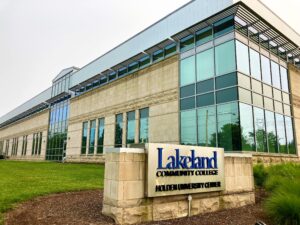A recent study by George Washington University examined the ROI of various college degrees. Overall, an MBA from Penn’s Wharton School of Business produced the highest return two years after graduation. The average Wharton MBA can expect to earn more than $165,000 per year, after debt payments. The report also looked at the ROI on associate degrees.
The two-year degree with the highest ROI is also a business degree. Southern New Hampshire University, a private, non-profit institution in Manchester, NH shares top honors with Excelsior College in New York and Gwinnett Technical College in Georgia. The top earning associate degree from these three schools will net you $44,400 after educational debt.
There’s a world of difference between MBAs from Wharton and associate degrees from Gwinnett Technical College. My point is that the best a person can expect two years following graduation is $3,700 per month. Students at all other community colleges studying all other majors can expect to earn less.
That alone makes it very difficult to justify even going to a community college. If the student’s goal is to live above the poverty line, they need associate degrees that generate higher economic returns.
Graduates of the top-performing community colleges can expect to pay anywhere between 4%-10% of their monthly earnings to cover their educational debts. Most student loans are repaid within 10 years, but for community college students, the first 10 years after graduation are the years in which they can expect to see the highest return on their educational investments. It really hurts when education debt consumes a noticeable percentage of an already meager salary.
Associate degrees need to return more than ALICE wages
There are no two ways around this question. Our well-paid, well-fed community college administrators must find a way (quickly) to add substantial value to associate degrees. It is neither right nor fair to ask students to borrow money to earn a degree that cannot produce an adequate return on investment.
It is also not fair to ask the community to continually support a community college administration that is clearly low on ideas, motivation, or both. Washtenaw County taxpayers throw more dollars at Washtenaw Community College than voters in all but a handful of Michigan counties.
If WCC’s enrollment recovers, it will do so only when the administration produces economically viable reasons for students to return.
Photo Credit: CafeCredit.com , via Flickr













